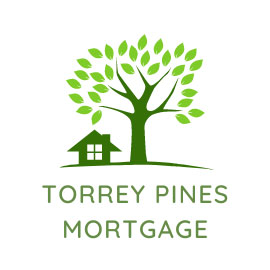How to Get a Mortgage When You’re Self-Employed
If you’re self-employed and want to buy a home, the mortgage application process is similar to that of traditionally employed borrowers. Lenders will evaluate key factors such as your credit score, debt, assets, and income. However, verifying your employment and income works differently when you’re your own boss.
When you work for someone else, lenders contact your employer to confirm your job status and income. If you’re self-employed, you must provide the necessary documentation yourself to verify your business and earnings.
Qualifying for a Mortgage When You’re Self-Employed
Being organized and keeping track of your income is essential if you’re self-employed. This guide will help you understand what lenders are looking for and how to prepare for the mortgage application process.
What Are Mortgage Lenders Looking For?
When evaluating your mortgage application, lenders typically require the following:
- Income Stability
- The Location and Nature of Your Business
- The Financial Strength of Your Business
- The Likelihood Your Business Will Continue Generating Sufficient Income
Required Documents for Self-Employed Borrowers
To begin the mortgage application process, you typically need to provide at least two years of uninterrupted self-employment income. Common documents lenders may request include:
Employment Verification
Acceptable forms of employment verification include:
- Emails or letters from current clients
- Documentation from a licensed certified public accountant (CPA)
- Verification from a professional organization
- State or business licenses
- Business insurance
- “Doing Business As” (DBA) certificate
Income Documentation
Lenders require proof of consistent and reliable income. This documentation may include:
- Personal tax returns (including W-2s if applicable)
- Business tax returns (e.g., Schedule C, Form 1120-S, or K-1, based on your business structure)
- Bank statements (monthly or quarterly) to verify funds for a down payment
What If You’ve Been Self-Employed for Less Than 2 Years?
It is possible to qualify for a mortgage if you’ve been self-employed for less than two years. Generally, your business must be active for at least 12 consecutive months, and lenders will verify your previous two years of employment. In this case, your professional background and education may also be evaluated to determine the stability of your business.
Tips to Strengthen Your Mortgage Application
To improve your chances of mortgage approval as a self-employed borrower, consider these tips:
1. Monitor Your Debt-to-Income Ratio (DTI)
Your DTI is the percentage of your monthly income that goes toward debt payments. A lower DTI suggests you can comfortably manage mortgage payments.
How to calculate DTI:
Divide your total monthly debt by your gross monthly income. Exclude variable expenses such as utilities and groceries. If your DTI exceeds 50%, focus on reducing debt before applying.
2. Maintain a Strong Credit Profile
Lenders use your credit score and credit history to assess your reliability as a borrower. A higher credit score increases your chances of approval and may secure better loan terms. Aim to keep your credit utilization low by limiting how much of your available credit you use.
3. Separate Business and Personal Expenses
Using personal credit for business expenses can inflate your credit utilization ratio, which may harm your application. Where possible, maintain separate accounts and credit cards for business and personal transactions to present a clearer financial picture.
4. Explore Alternative Loan Options
If you have difficulty qualifying for a conventional mortgage, you may be eligible for other loan programs:
- FHA Loans: Available with lower credit and income requirements
- VA Loans: For eligible active-duty service members, veterans, and surviving spouses
5. Be Prepared to Make a Larger Down Payment
A larger down payment can strengthen your application and may lead to a lower interest rate. If needed, explore down payment assistance programs to help cover the upfront costs.
6. Consider a Co-Signer or Co-Borrower
If your employment status or income history is a concern, a co-signer or co-borrower with strong credit and income may improve your approval odds. Ensure they understand the legal and financial obligations associated with their role.
The Bottom Line
Self-employed borrowers can qualify for a mortgage by providing thorough documentation, maintaining a low DTI ratio, and ensuring a healthy credit score. Whether you’re employed or self-employed, securing preapproval is a crucial first step in finding the right home loan for your needs.
